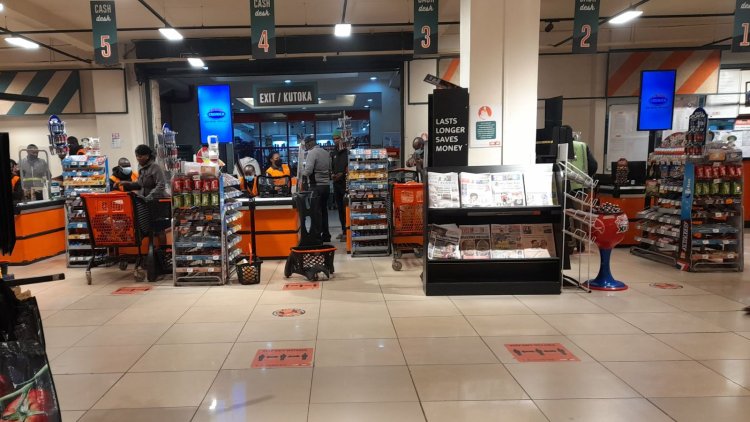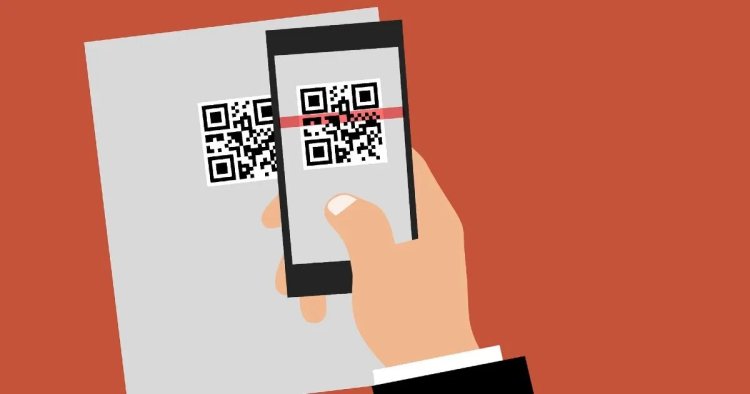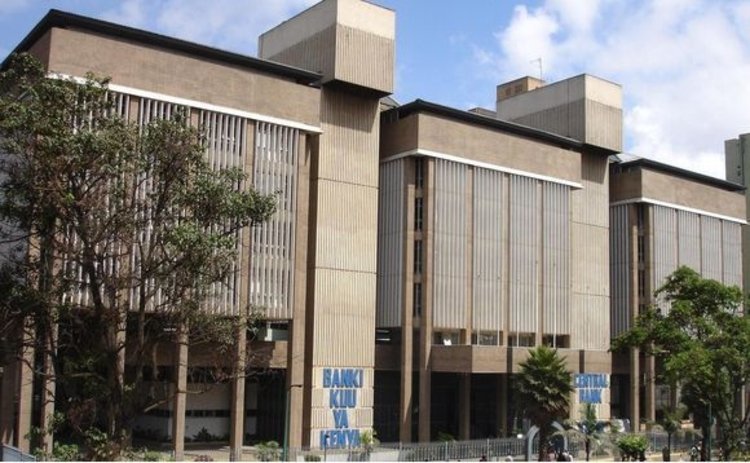CBK Introduces New Payment System To End Long Queues In Supermarkets
The move seeks to empower Kenyans to adopt cashless transactions

The Central Bank of Kenya (CBK) on Wednesday, May 3 announced a new payment system that is set to ease the mode of payments across businesses in Kenya including supermarkets, general stores, shops and other outlets.
CBK announced the issuance and implementation of the Kenya Quick Response Code Standard 2023 (KE-QR Code Standard 2023; or the Standard), a payment interface that will allow individuals to send money to an individual or business by scanning a Quick Response (QR) Code.
The move seeks to empower Kenyans to adopt cashless transactions as well as a quicker and more efficient way of paying for goods and services by simply scanning a QR code from their smartphones.

Image of a QR Code scanner. /FILE
"The Standard will guide how Payment Service Providers and banks (institutions) that are regulated by the CBK will issue Quick Response (QR) Codes to consumers and businesses that accept digital payments," stated CBK in part.
How QR Codes Work
QR Codes are machine-readable codes consisting of an array of black and white squares containing information that provide an alternative option for initiating and accepting digital payments made by customers at various points of sale, such as supermarkets, general stores, and shops, among other outlets.
CBK added that the implementation of the Standard, and use of standardised QR Code-enabled payments, will bring practical benefits to businesses and customers.
With the new payment system, customers will be allowed to make digital payments in an easy, fast, convenient, and secure manner using QR.
"Previously, customers had to manually input different payment codes and numbers, hence creating friction and cumbersome payment processes that are prone to errors.
"The Standard will also promote inclusion by enabling institutions of various sizes and customer focus to increase adoption of digital payments," added CBK.
The bank regulator added that the new system will enable the development of new innovations aimed at making the lives of customers making payments for goods and services easier in the long term in the new age of technology.
"In the long term, the use of standardised QR Codes will facilitate the launch of innovative products and deepen the benefits already enjoyed by customers making payments across various institutions and mobile money networks (interoperability).
"The Standard, which is based on the EMVCo QR Code Specification, has been developed through collaboration between CBK, Payment Service Providers, banks, and card schemes, among others," CBK added.
The Standard will be rolled out in a phased approach as these players align their operations to the requirements set out in the Standard and increase customer awareness.
CBK hailed the issuance of the Standard as an important step in the implementation of the National Payments Strategy 2022 - 2025 which was launched in February 2022 to, among other things, support the adoption of key standards and align Kenya’s National Payment System to global best practice.
Risks of QR Code
Aside from the many benefits of the Kenya Quick Response Code, CBK however warned that it posed several risks to the users such as phishing attacks in addition to the code limiting acceptance locations on top of connectivity issues and required adequate consumer training for efficient use.
At the same time, the QR code system could result in a poor consumer journey experience. However, the regulator outlined measures to mitigate the risks and enhance Kenya's global leadership in digital payment.
"To mitigate these risks, measures such as consumer training, improved payment connectivity, increased QR code acceptance, improved QR code security, and clear data handling policies will be implemented," added CBK.

An image of the Central Bank of Kenya in Nairobi. /FILE
With the launch of the QR Standard, Kenya is joining other leading markets that have implemented the standardized approach to issuing QR codes for facilitating payments.
These countries include the Philippines, Jordan, South Africa, Singapore, Bahrain, Saudi Arabia, India, and China.






